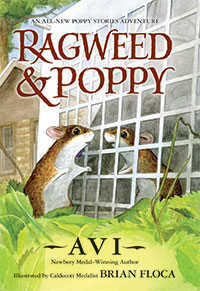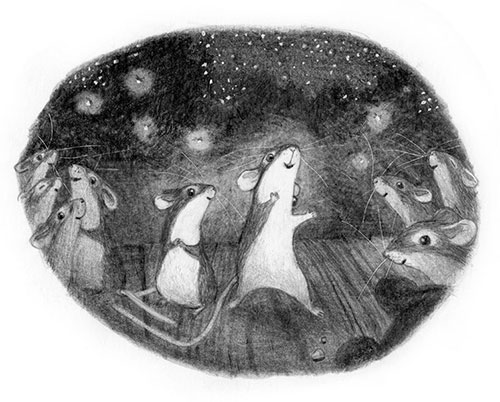 Writing something that is funny—that will make readers laugh—is one of the hardest things to do. When I set out to write Ragweed & Poppy, that was one of the goals.
Writing something that is funny—that will make readers laugh—is one of the hardest things to do. When I set out to write Ragweed & Poppy, that was one of the goals.
The writer sits in front of the blank page (or screen). He/she is usually alone. Maybe you are listening to music. (I like absolute quiet) You are trying to invent a joke, a situation, a phrase, that is meant to bring laughter, or a giggle, maybe just a smile, but there is no one to give that response. It’s all in your head.
 There is a story about Oscar Wilde—one of the great wits of all time—and his hilarious play, The Importance of Being Earnest. It is said that at the first performance of the play he stood at the back of the theatre nervously pacing, listening to the audience reaction. Of course there was much laughter at specific lines. But it was not until the audience laughed (in the second act) at a turn in the plot, that Wilde was satisfied that he had written a funny work. It was not the gags which were fun—they are—it was the absurdity that was brilliant.
There is a story about Oscar Wilde—one of the great wits of all time—and his hilarious play, The Importance of Being Earnest. It is said that at the first performance of the play he stood at the back of the theatre nervously pacing, listening to the audience reaction. Of course there was much laughter at specific lines. But it was not until the audience laughed (in the second act) at a turn in the plot, that Wilde was satisfied that he had written a funny work. It was not the gags which were fun—they are—it was the absurdity that was brilliant.
I don’t care how good a writer you are. You may be able to write a searing tragedy, or a heart-thumping thriller. That doesn’t mean you can write something that is funny. True funny is rare.
Curiously, while that which is funny is treasured—we all love to laugh—it is often considered a less worthy form of art. That bias is built into the language. “That’s a joke,” we say of something that is unworthy. “He’s a clown,” we offer about someone who should not be taken seriously. “It was a farce,” a term applied to something that is bad. “It’s laughable,” is a term of rejection.
On the other hand, we can say, “She is a tragic figure,” and there is respect built into the phrase. “He’s led a sad life,” evokes sympathy. “It’s an unhappy situation,” calls for compassion. “They have unhappy lives,” asks for understanding.
How does one learn to be funny? I’m not sure one can. Rather, I think it is a way of looking at the world. A person with wit sees absurdity, irony, contradiction, the ridiculous in the world. Funny is often a way of framing failure as an inherent part of the human condition. Funny—while it can be cruel—is more often forgiving. We “laugh it off.”
Young people—kids—adore funny. I suspect it is because they are capable of seeing—and acknowledging—the absurdity of much that happens in the world. Adults can find it threatening. Kids are willing, indeed welcome surprise, which is a key aspect of funny.
I love writing funny books. The End of the Beginning. Who was that Masked Man Anyway? S.O.R Losers. Midnight Magic. Never Mind. And the Poppy books. Kids adore the character Ereth, not because he is wise: because he is absurd, full of nonsense.
And now there is Ragweed & Poppy. Full of surprises (I hope). A good dose of absurdity. A few ridiculous situations. And any number of moments that should just make the reader—laugh—aloud.
In these days—a good thing. Enjoy.

2 thoughts on “Writing a Funny Book”
Oh, this is spot on, Avi — especially as regards the strange dichotomy of how much we love good comedy while at the same time holding it in low esteem.
Every once in a while when I am working I write something that makes me laugh out loud. Those moments are rare and I truly cherish them when they happen!
When I was teaching I always tried, especially during my years in 3rd grade, but in 5th as well, to intersperse some books that really brought humor to our classroom life. (I was choosy, it couldn’t be what I thought of as a cheap laugh or at someone’s expense. Witty, silly, fun. You are absolutely correct, of course about how hard it is to get it right. Thank you for all the writing you do. Kids do love your Poppy books.